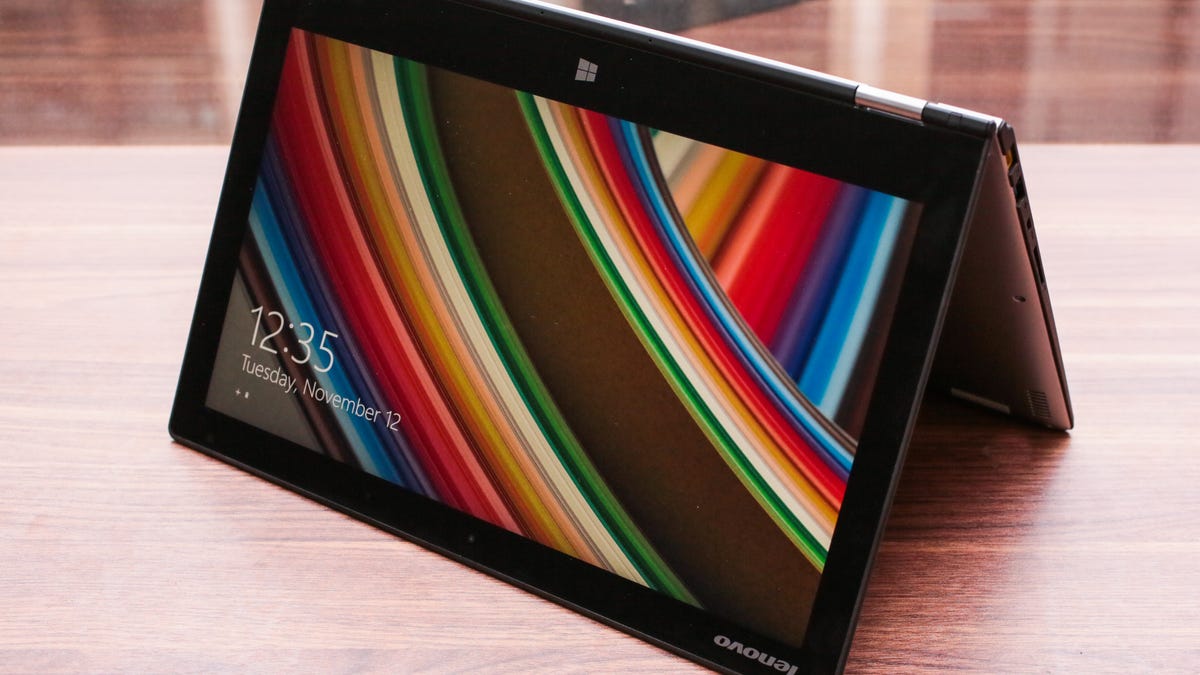Computers at CES 2014: Chromebooks and hybrids, plus the birth of Steambox
Look for more inexpensive laptops, smarter takes on convertibles, and a chance for small desktops to conquer the living room.

The laptop and desktop of today is far removed from the models spotlighted at CES even a few years ago. Modern laptops are slimmer and lighter, and run longer, while nearly all new Windows PCs, including all-in-one desktops, have touch screens -- a practical requirement for the Windows 8 operating system.
Beyond that, we live in a world of hybrids on convertibles now, where systems experiment with new forms and functions, shifting between laptop and tablet. Some are more successful than others, and even after more than a year of touch screen hybrids, we're still sorting out what types of convertible bodies consumers actually like using.
While the past few CES shows have covered groundbreaking trends such as ultrabooks, touch screens and Windows 8, hybrids, and tablets, this year looks like it may be devoid of a single new idea theme. Instead we'll see refinements of these recent trends, hopefully resulting in better, less-expensive technology for everyone.
Of course, keep in mind that announcing a raft of products in January no longer matches up with most PC makers' annual calendars, which are largely tuned to the back-to-school and holiday seasons. So it makes sense that companies such as HP, Dell, and others would announce new products on their own timetables later in the year.
Chromebooks
Look for new entries in this still-untested space. Early laptops running Google's kinda-sorta OS have sold well, but that's because of extremely low prices and a significant marketing push from the Google mothership.
Having tried to use a Chromebook as a primary computer for a week, it's going to take some serious shifts in how people use their laptops to make Chrome OS more than something for a secondary backup PC. The real question becomes, is the Chromebook just netbook 2.0?
Hybrids and convertibles
Ever since the fall 2012 release of Microsoft's Windows 8, hybrids have been a major part of every wave of new PC releases. This burst of unexpected creativity came because Windows 8 was so touch-friendly, and because PC makers wanted to capitalize on the success of tablet such as the iPad without leaving traditional PC users behind.
What we'll see in 2013, starting with CES, is a shakeout of the different physical forms these hybrids have taken. Some are laptops with detachable screens; others slide, fold, and bend into tablet shapes. To date, it's been a matter of throwing everything at the wall and seeing what sticks. An educated guess says that the most successful hybrids to date are the ones (including Lenovo's Yoga line) that allow for transformation, but without compromising the traditional laptop shape.
Steambox and the living room PC
Desktop PCs have largely morphed into a business about the all-in-one unit -- a desktop and monitor fused together. The only other big desktop news of the past year has been Apple's very high-end Mac Pro desktop, a product that preceded CES by a few weeks and is more exciting than any desktop we'll see there.
That said, there is one new area desktops can move into and generate some genuine growth. Living room entertainment has been largely ceded to the new Xbox One and PlayStation 4 game consoles, but there's room for a new breed of PC to fill a lot of needs.
The first demo kits of Valve's Steambox have already been sent to beta testers. This console-sized hardware connects to a TV, uses a unique controller designed to bridge the gap between PC and console gaming, and plays a wide variety of games via Valve's own Steam OS, including with a little sleight of hand nearly every Steam game you'd be able to play on your big, bulky gaming PC.
At CES, we'll see the first wave of actual Steambox hardware from PC makers, and this could be the start of the PC industry clawing a bit of the living room back from the game consoles.

